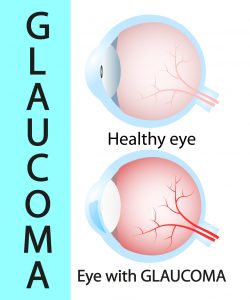 The Greek-style diet has long been touted as one that is full of heart healthy benefits. These benefits are thought to stem from the vast array of healthy fats from plant-based sources and limiting of saturated fats from red meats as well as the rich source of fruits and vegetables in this Mediterranean regimen. However, the health benefits may extend much further than initially realized. A recent study shows that the Mediterranean diet may help to lengthen life of older adults.
The Greek-style diet has long been touted as one that is full of heart healthy benefits. These benefits are thought to stem from the vast array of healthy fats from plant-based sources and limiting of saturated fats from red meats as well as the rich source of fruits and vegetables in this Mediterranean regimen. However, the health benefits may extend much further than initially realized. A recent study shows that the Mediterranean diet may help to lengthen life of older adults.
What is the Mediterranean diet?
The Mediterranean diet is a heart healthy eating regimen that has been linked with such benefits as low LDL cholesterol and improved overall heart health. These benefits are suggested to be from the emphasis of fruit and vegetable intake on this regimen as well as the following diet guidelines.
- Consuming plenty of fiber-rich legumes, nuts, seeds, and whole grains.
- Limiting salt intake, and instead using herbs and spices to flavor food.
- Only eating red meat a few times a month, and instead loading up on lean proteins, fatty fish, and plant-based protein and fat sources.
- Eating fish or poultry like chicken or turkey at least twice a week.
- Focusing on whole grains versus refined grains and cutting out trans fats from the diet.
- Drinking antioxidant-rich beverages like grape juice or wine, about five ounces a day (optional).
- Staying active most days of the week.
Health benefits of the Greek-style diet
The heart health benefits of the Greek-style diet are the most well-known. However research shows that health benefits of this eating regimen may extend beyond heart health. Other health benefits that come as a result of the Greek-style diet include:
- improved digestive health
- enhanced cognitive function
- lower risk of certain cancers
- improved blood glucose levels
Mediterranean diet and longer life
A recent meta-analysis study in the British Journal of Nutrition looked at the effects of a Mediterranean-style diet on length of life in older adults. This long term study observed data of over 5000 people aged 65 years or older. These individuals were observed for around 8 years or more on average. Study results show that those who followed a Mediterranean-style diet had prolonged survival as compared to those who did not follow such a diet. Researchers suggest that the Mediterranean-style eating regimen could be beneficial to older adults to help reduce chronic disease risk factors, and in turn potentially lengthen their life.
Other ways to improve health
Besides eating a diet full of health fats, there are also other lifestyle changes that could lengthen your life.
- Get plenty of sleep: Sleep can impact blood pressure regulation and hormone regulation, to name a few. Therefore, be sure to get at least 7 to 9 hours of sleep each night. If you have trouble sleeping, try such strategies as blackout curtains, limiting screen time at night, or natural supplements like Somnova. Somnova by Vita Sciences contains melatonin, which is a non-habit forming supplement that can help promote better sleep.
- Drink enough water every day: Staying hydrated is an important part of any healthy lifestyle. Check your urine daily to make sure you are staying hydrated. If your urine is darker than lemonade, then it is time to drink more water. A good rule of thumb to follow is about half of your body weight (in lbs.) in ounces per day of fluid. For example, someone who is 200 pounds, should drink about 100 ounces, or 12.5 cups of fluid each day. Fluid can be any unsweetened beverage like water, low calorie drinks, flavored water, tea, or decaf coffee, to name a few.
- Take heart healthy supplements to fill in the nutritional gaps: If you don’t think you are getting enough healthy fats from your diet, then add in a supplement. One such supplement is fish oil, which has been shown to support healthy cholesterol levels. The fish oil from Vita Sciences in particular is a pure, burpless brand with 1000 milligrams of EPA and DHA shown to support brain, heart, and immune health.
- Reduce stress: It will be important to keep your stress levels low for optimal health. This is because not only can stress affect blood pressure, but it can also lead to emotional eating and poor sleep, which can affect overall health. Therefore, talk to a friend, family member, or professional for stress management strategies. Also, engage in meditation, yoga, relaxation breathing, or other relaxing activities like walking to help manage stress.
-written by Staci Gulbin, MS, MEd, RD, LDN
References:
Bonaccio, M., Di Castelnuovo, A., Costanzo, S., Gialluisi, A., Persichillo, M., Cerletti, C., . . . Iacoviello, L. (n.d.). Mediterranean diet and mortality in the elderly: A prospective cohort study and a meta-analysis. British Journal of Nutrition, 1-14. doi:10.1017/S0007114518002179
Mayo Clinic (November 3, 2017) “Mediterranean diet: a heart-healthy eating plan.” https://www.mayoclinic.org/healthy-lifestyle/nutrition-and-healthy-eating/in-depth/mediterranean-diet/art-20047801
National Sleep Foundation (accessed September 12, 2018) “How Much Sleep Do We Really Need?” https://sleepfoundation.org/how-sleep-works/how-much-sleep-do-we-really-need
Romagnolo, D. F., & Selmin, O. I. (2017). Mediterranean Diet and Prevention of Chronic Diseases. Nutrition Today, 52(5), 208–222. http://doi.org/10.1097/NT.0000000000000228
 Could it be? Could the delicious sweetness of chocolate actually be good for you? The answer is yes, but in moderation. Chock full of antioxidants, this delicious treat may be able to help you combat heart disease. A recent study has shown that moderate consumption of chocolate can reduce risk of heart disease.
Could it be? Could the delicious sweetness of chocolate actually be good for you? The answer is yes, but in moderation. Chock full of antioxidants, this delicious treat may be able to help you combat heart disease. A recent study has shown that moderate consumption of chocolate can reduce risk of heart disease. A recent study of 2000 overweight men and women with prediabetes looked at the effects of a low-calorie diet. After eight weeks, the men in the study lost significantly more weight than women and had larger reductions in their metabolic score, which is a marker for diabetes. In addition, the men had greater loss of fat mass and lower heart rate after eight weeks on the diet. However, women did have the upper hand on some health markers. In fact, women had a larger reduction in hip circumference, lean body mass, and pulse pressure than men.
A recent study of 2000 overweight men and women with prediabetes looked at the effects of a low-calorie diet. After eight weeks, the men in the study lost significantly more weight than women and had larger reductions in their metabolic score, which is a marker for diabetes. In addition, the men had greater loss of fat mass and lower heart rate after eight weeks on the diet. However, women did have the upper hand on some health markers. In fact, women had a larger reduction in hip circumference, lean body mass, and pulse pressure than men. Probiotics are getting more press each and every day for their health benefits. From skin health, improving bone health, and of course, enhancing gut health, the possibilities seem endless. In fact, a recent study shows that combining a probiotic with breastfeeding in the first year of life can have improvements in the gut health of infants.
Probiotics are getting more press each and every day for their health benefits. From skin health, improving bone health, and of course, enhancing gut health, the possibilities seem endless. In fact, a recent study shows that combining a probiotic with breastfeeding in the first year of life can have improvements in the gut health of infants. What is glaucoma?
What is glaucoma? Whether you walk, run, swim, cycle, or dance, exercise is a great way to keep your heart in tip top shape. Exercise is also recommended for weight loss, controlling blood glucose levels, and even for helping reduce stress by releasing endorphins. Recent research has shown that exercise may also be good for reducing inflammation in the body, and in turn reducing your risk for many chronic diseases.
Whether you walk, run, swim, cycle, or dance, exercise is a great way to keep your heart in tip top shape. Exercise is also recommended for weight loss, controlling blood glucose levels, and even for helping reduce stress by releasing endorphins. Recent research has shown that exercise may also be good for reducing inflammation in the body, and in turn reducing your risk for many chronic diseases. Heart disease is the leading cause of death for men and women in the United States. It accounts for one in four deaths each year. However, yo can prevent heart disease by changing some lifestyle factors to lower your risk. Risk factors of heart disease include poor diet, physical inactivity, being overweight or obese, being a smoker, and having diabetes. Fortunately, by working to change a few things in your daily routine, you can lower your risk of heart disease. Here are the top five things you can do today to lower your risk of heart disease.
Heart disease is the leading cause of death for men and women in the United States. It accounts for one in four deaths each year. However, yo can prevent heart disease by changing some lifestyle factors to lower your risk. Risk factors of heart disease include poor diet, physical inactivity, being overweight or obese, being a smoker, and having diabetes. Fortunately, by working to change a few things in your daily routine, you can lower your risk of heart disease. Here are the top five things you can do today to lower your risk of heart disease. Yet another reason to eat chocolate, as if you needed one. Besides tasting delicious, chocolate has many health benefits. Recent studies show that eating a bit of dark chocolate each day may help to improve vision, memory, and lower stress.
Yet another reason to eat chocolate, as if you needed one. Besides tasting delicious, chocolate has many health benefits. Recent studies show that eating a bit of dark chocolate each day may help to improve vision, memory, and lower stress. Do you get cramps in your side after eating certain foods? Do you feel bloated, gassy, or suffer from constipation? If so, then you may have an imbalance in your gut bacteria. Probiotics may be able to help you improve your digestive health.
Do you get cramps in your side after eating certain foods? Do you feel bloated, gassy, or suffer from constipation? If so, then you may have an imbalance in your gut bacteria. Probiotics may be able to help you improve your digestive health. With the summer months approaching and weather warming, weight loss may be on your mind. With every click of the remote, there are commercials advertising weight loss plans, exercise equipment, and fat burning supplements claiming to help you manage your weight. However, a recent study has shown that regular eating versus dieting may be the answer to long term weight loss and management.
With the summer months approaching and weather warming, weight loss may be on your mind. With every click of the remote, there are commercials advertising weight loss plans, exercise equipment, and fat burning supplements claiming to help you manage your weight. However, a recent study has shown that regular eating versus dieting may be the answer to long term weight loss and management.